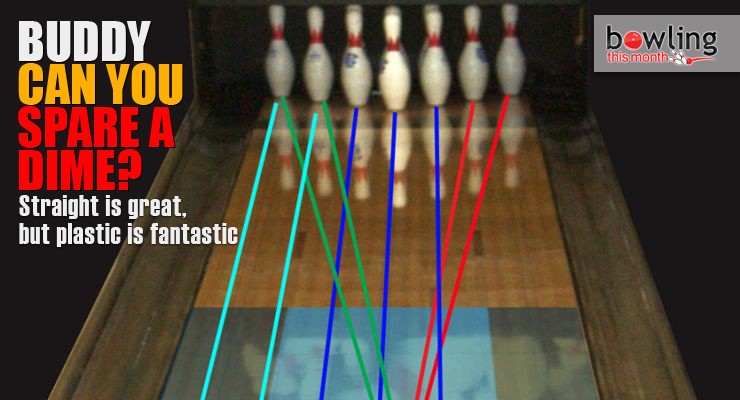Article Contents
- 1. The case for the plastic spare ball
- 2. Split conversions
- 3. Targeting
Note: This article is only available to Bowling This Month subscribers.
No difference in the beliefs between traditional and modern bowlers creates more heated discussions than the idea of using a separate polyester (plastic) ball to pick up same side corner spares (6 and 10 pins for righthanders and the 4 and 7 for lefthanders).
Many maintain they can so effectively “flatten out” same side corner shots, there is nothing to be gained by lugging around a plastic ball. Many contemporary bowlers who learned to bowl using high rev rates and the massive hook possible with modern reactive balls maintain that using a plastic ball, thrown end-over-end at high velocity, is the most effective way of converting same side corner pin spares.
As everyone seems to have an opinion on the subject, I thought I’d take this opportunity to give you mine, along with the reasons for it. Note that I have highlighted the word reasons because, frankly, “I’ve always done it that way” is not a reason. It’s an excuse not to change. It goes right along with comments like, “Spares are over-rated,” and actions like resetting a 10 pin to practice another strike shot during warm up and missing the first 10 pin left standing during competition.
The case for the plastic spare ball
Anyway, the changes that define modern bowling – super powerful balls that hook all by themselves, synthetic lanes and oils, and the modification of lane oil specifications by our governing body – have combined to make the use of plastic balls mandatory for bowlers who want to carry the highest average they can.
Consider that the modern house shot offers an area of free hook in the track. Any reactive ball that crosses that area, regardless of how the shot is flattened out by the release of the bowler, is in danger of hooking and ...
Already a premium member? Click here to log in.


